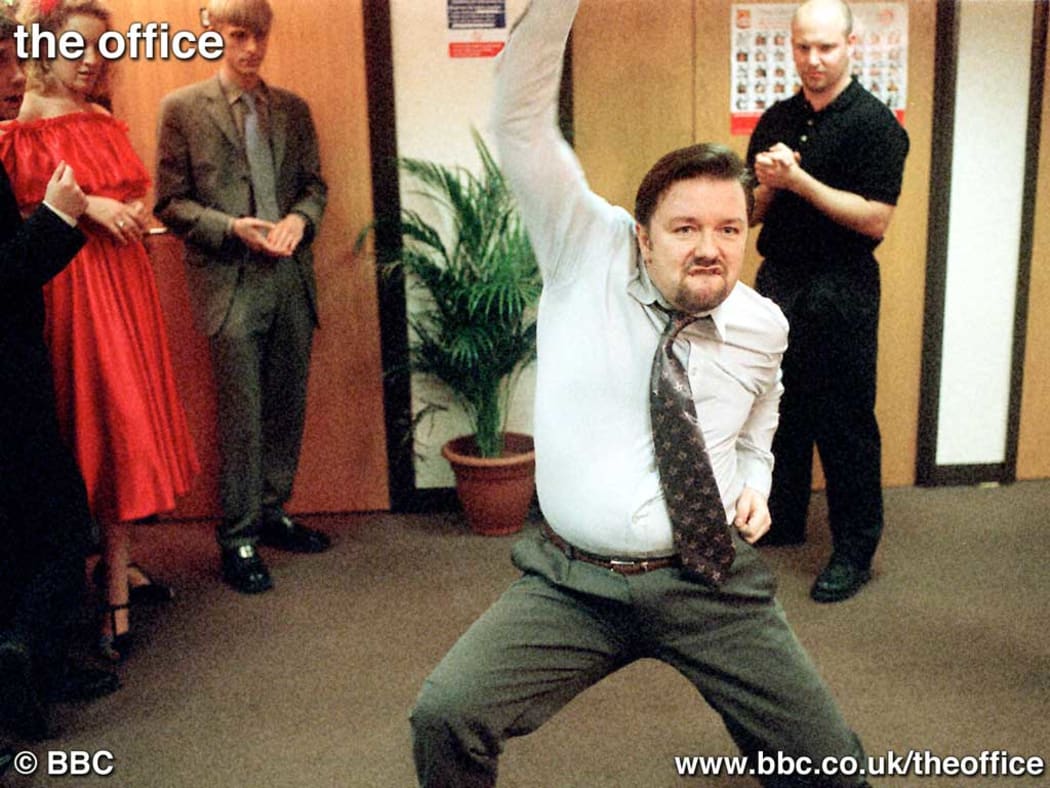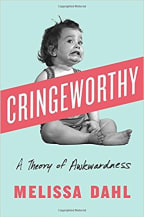It's hard to avoid those excruciating moments when we cringe at something painfully awkward we’ve said or done.
Melissa Dahl, senior editor at New York Magazine, dives into the phenomenon - and offers survival tips - in her book Cringeworthy: A Theory of Awkwardness.

Photo: BBC
Most of us can recall horribly embarrassing moments, as stories from RNZ listeners reveal.
A woman recalled her early years in retail when she asked a customer whether he wanted a hand - belatedly realising his left arm was amputated at the elbow. “I still cringe,” she says.
Another person, in conversation after the funeral of a friend’s father, intended to ask the friend when the casket would be leaving for the graveside, but said “carcass” instead.
“There was a collective gasp and I melted into the floor. It was truly hideous. I still flush all these years later.”
And a mother, preparing to take her then-teenage daughter and new boyfriend to the Big Day Out, was told they wanted to be there in time for Foo Fighters.
“But I heard ‘food fight’ and decided to help out by collecting some rotting food and presenting it to them. What kind of mother offers rotten food to their daughter to take on her first date? I’m still a laughing stock.”

Photo: supplied
Dahl’s book came from curiosity driven by her personal experience.
“This is just a feeling that has driven me nuts for as long as I can remember.
“I’ll leave a party or something and the whole cab ride home I’ll be thinking of all the stupid things I said.”
Now a science journalist, specialising in psychology, she’s had the opportunity to delve into the question of what makes people cringe.
“I just couldn’t find the answers …there’s not like a department of awkwardness studies at Harvard or something.”
But it’s thought that two types of people tend not to be too bothered by embarrassment.
“Jerks don’t feel a lot of awkwardness,” she says.
“Our American president … I don’t think he feels awkwardness that often.”
The other is people who are very self-accepting – they realise they’re not the only one to have ever done something like that.
Dahl doesn’t listen back to the many radio interviews she’s done – and says it’s almost a cliche that people hate hearing the sound of their own voice.
There’s a physiological explanation for why a recording of our voice sounds different to the way we hear it, she says.
When we listen to ourselves, we hear the sound through the air and through the bones of our own skull, which transmit it at lower frequency than others hear it. On a recording, our voice appears to sound higher to us.
But that doesn’t explain why it makes us cringe. Dahl’s theory is it’s because we sense the person we think we're presenting to the world is not the way the world is actually seeing us.
While researching her book she came across a subreddit that exists to share awkward stories and cringeworthy videos, and was surprised how supportive it was.
“All of the comments are just so rich in empathy” she says.
Embarrassing events seem to stay in our memories for a long time, and Dahl says the best explanation she could find was that our brains hang on to things that have a lot of emotion attached.
The way to counter that goes against our natural inclination to push away an embarrassing memory as soon as possible. Researchers say what helps lessen the impact is to try to remember other details; who else was there, what did it look like, what did it sound like, what season it was.
“There’s supposedly something about remembering some of those unemotional parts of it that dampens the emotional sting.
“The other thing that really works for me is to try to ‘zoom out’ and just put yourself in a wider perspective – just reminding yourself that you’re not the only person that’s ever happened to.”
The classic “cringey show” is The Office, she says, but she’s a huge fan of Flight of the Conchords for its awkward comedy moments.

